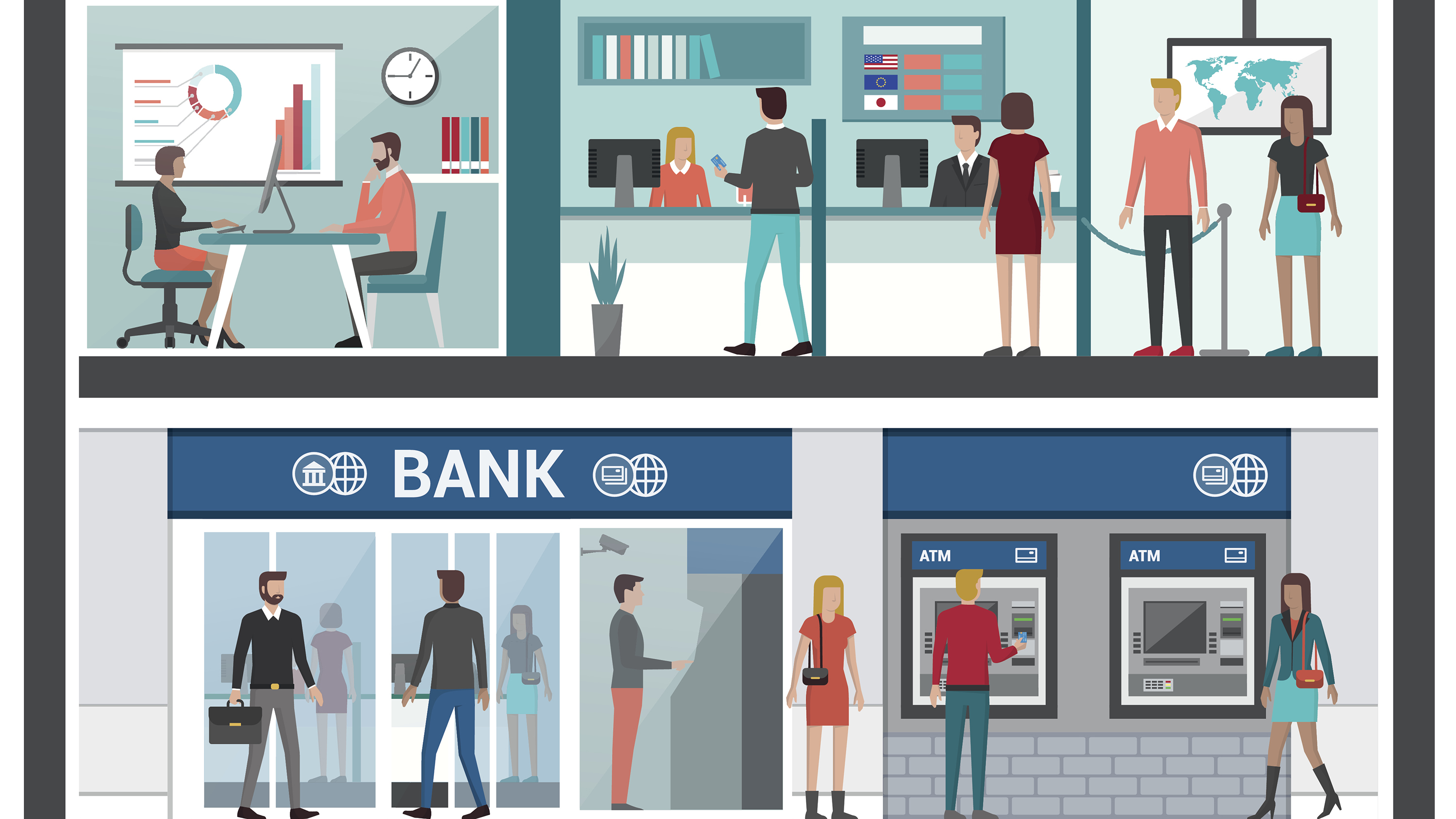
Image: Getty Images
Prioritising customer support, more face-to-face interactions and sustainable practices are among the key 2023 predictions for the retail banking industry in Europe. Sonja Wind reports.
The past 12 months have been challenging for the banking industry in Europe. Market disruptions caused by the ongoing conflict in Ukraine and the aftermath of the Covid-19 pandemic have put an end to low inflation and low interest rates.
In 2023, banks will need to focus on delivering existing commitments, but experts predict several other themes that European retail banks will prioritise this year.
“Through challenging market periods, you often get some tremendous innovation,” says David Gillespie, partner and head of retail banking and wealth management for Europe at consulting firm Oliver Wyman. “You’re probably going to see a bit more of a gap between the leading players who managed to get it right and the others who don’t manage to hit the sweet spot.”
you’re probably going to see more of a gap between the leading players who managed to get it right and [those who didn't]
Customers will come first
Financial difficulties among customers increase in times of economic downturn. Therefore, supporting customers should be a main objective for banks, says Paul Stallard, associate director at the Centre for Digital Banking and Finance at the London Institute of Banking & Finance.
“We know that trust in banks has been seriously eroded over the past few decades and this is another ideal opportunity to regain a lot of that trust, especially by helping the most vulnerable,” he says.
To better support customers facing financial problems, early warning systems, artificial intelligence and expanding customer support teams will play a crucial role. “Banks have recognised the criticality of getting this right in customer, regulatory and brand terms,” says Mr Gillespie.
The Financial Conduct Authority’s new Consumer Principle, which will be phased in from July 31, will oblige banks to put their customers’ needs first.
Face-to-face contact
While digital channels will continue to play an essential role, experts predict a rising demand for face-to-face customer interactions and new hybrid solutions.
“Due to the additional focus on customers and because of the economic crisis, I expect to see more innovation in the way banks interact with customers. Digital channels will have an incredibly important role in this process, but they alone will not be enough,” says Mr Stallard.
Mr Gillespie also predicts that banks may well start to adopt more nuanced and hybrid distribution strategies. This shift would follow two decades of reducing their branch footprint and increasing digitalisation. To better support customers during the economic crisis, banks may also consider changing their branch opening hours to better accommodate customer schedules.
Focus on deposits and affluent customers
Recent actions by central banks have put an end to the era of ultra-low interest rates. Rather than focusing on lending, banks are pivoting to an economic model increasingly driven by deposits. Many believe that physical distribution branches have a key role to play to attract and retain deposits.
As capital surpluses increase, many banks are expected to shift their focus to meeting the needs of affluent customers. This shift will likely lead to increased competition and innovation within the industry.
“Expect to see banks pay more interest in using technology to create innovative products and services for the more affluent of their customers, who have seen little innovation directed toward them,” says Mr Stallard.
As banks compete to attract and retain these high-value customers, they will need to be proactive in offering new and improved products and services.
Sustainable practices
As concerns about climate change continue to grow, experts expect to see banks shift away from taking a programme-based approach towards integrating climate into business as usual. This includes offering new products and services that help customers reduce their carbon footprint, such as mortgages that support retrofitting of existing properties and the installation of more efficient heating systems.
The focus on “sustainable banking” is also driven in part by the need for banks to meet increasing regulatory requirements related to environmental, social and governance issues. These efforts reflect a broader trend toward more responsible and sustainable banking practices.
Embedded finance
As banks seek to drive growth, some of the leading players in retail banking are turning to embedded finance and ecosystem plays. “Embedded finance is an area which has been accelerating obviously over the past decade, but now it's getting to a really interesting place,” says Mr Gillespie.
Using application programming interface-driven technology, banks can create more convenient products like one-stop solutions for their customers. For example, mortgage clients could access a range of ancillary services related to home ownership through the bank instead of finding a service on their own.
Strategic acquisitions
This year could be a year of strategic acquisitions for large retail banks, as they look to use their surplus capital to buy up attractively priced assets. One tactic that these banks may pursue, according to Mr Stallard, is a programme of “cherry-picking the most attractive fintech companies”.
By acquiring or merging with these companies, banks can gain access to much-needed technology and technology skills, while also eliminating a competitor from the market.
Regardless of what 2023 brings, agility will continue to be a crucial factor for success in the retail banking industry. “Those organisations who have developed agility as a core competency – for example through culture, leadership and ways of working initiatives – are likely to be best placed to adapt with speed and scale when the thing no one thought of happens,” says Mr Gillespie.


